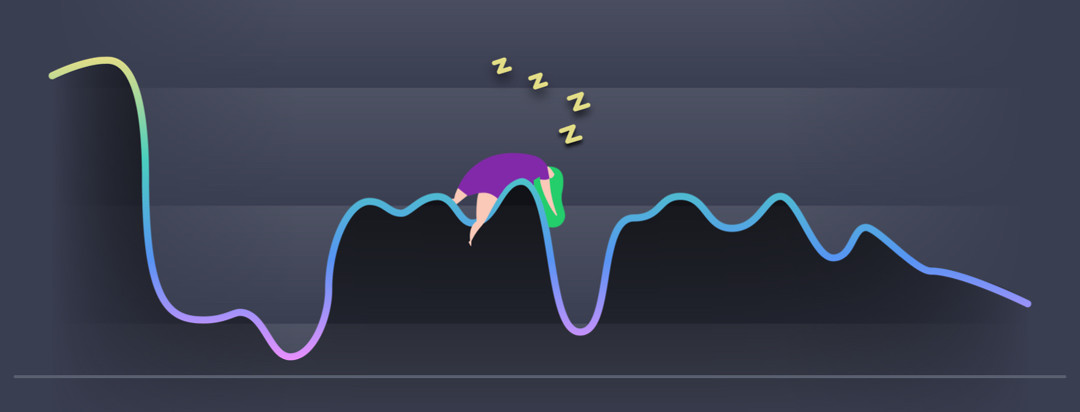Living with Lassitude: Primary Fatigue In MS
When it comes to discussing the many potential symptoms of multiple sclerosis, you can’t have a complete discussion until you’ve talked about one of the most common and heinous: fatigue. When it comes to fatigue with MS, it’s hard to accurately describe just how debilitating it can be.
MS lassitude
Far from the tiredness that most people have experienced, MS-related fatigue is a level of complete exhaustion that makes accomplishing the simplest of tasks incredibly difficult. The way multiple sclerosis affects our body has the odds stacked against us when it comes to experiencing fatigue. While there are many symptoms that can contribute to this level of exhaustion, the disease itself can also cause fatigue. We call this kind of fatigue “lassitude,” and it bears discussion outside of the other potential causes.1
MS fatigue can have many causes
One of the reasons fatigue is such a common issue among those with multiple sclerosis, is that there are many potential causes of fatigue. A lot of the other common symptoms have a tendency to interfere with our energy levels. Experience a lot of pain or spasms? Well, painsomnia can interrupt the amount and quality of sleep you get. Bladder issues can do the same (I know I’ve had stretches where I am constantly getting up to use the bathroom at night, leaving me with very little rest). Depression, which is extremely common in those with MS, can also contribute to fatigue.
Reasons for secondary fatigue
Sometimes certain medications can increase fatigue. Sleep apnea can occur in those with MS and can also have an effect on energy levels. Legs weak or have mobility problems? Well, then you likely are using more energy to compensate in order to prevent falls. In fact, many tasks with MS tend to require more energy to complete, making fatigue a natural by-product of life with the disease. Remember, this is a disease where simply taking a shower can be enough to wipe you out for the day; it’s not hard to see all the potential pitfalls we have when it comes to increased fatigue levels. When another symptom or the effect of living with MS is the culprit of our fatigue, we sometimes refer to that as “secondary fatigue.”
Primary fatigue
When it comes to MS, even if you don’t experience fatigue because of all of those other potential causes, you may still find yourself submerged in the all encompassing thickness of exhaustion. That’s because the disease itself can have fatigue as a symptom (as opposed to being the by-product of other symptoms). We refer to this kind of fatigue as “lassitude” or “primary fatigue,” and it's unique to those with MS.2
Severe levels of exhaustion
You can also have a perfect night’s sleep and still wake up utterly depleted. This kind of fatigue happens seemingly without any other cause. It is also among the most severe levels of exhaustion that one can experience, typically interfering with one’s daily activities. Lassitude also may worsen throughout the day or with increased heat and humidity. This is the kind of fatigue that is debilitating and difficult to explain to others. It’s not simply being tired, and it can’t be corrected with additional rest. It’s a whole-body exhaustion that I truly can’t put into words. I know of no language that can truly give justice to the condition of lassitude and what it does to the body.1
Fighting fatigue
Without really knowing the exact cause of lassitude, it’s difficult to effectively treat. When attempting to fight fatigue, I think it's good to look at other potential causes first. Is it a sleep issue? Or medication? Or somehow related to other symptoms (or their treatment)? Or can I learn to perform tasks differently (physical and occupational therapy can be helpful in combating fatigue)? Many times, re-addressing those other symptoms may be an effective (though not foolproof) way to manage fatigue.
There are, however, medications (not FDA-approved specifically for MS fatigue, but designed for other conditions) that could potentially be brought into play if you are truly experiencing lassitude (I’ve had some mild, though unexpected, success with Provigil). However, talk to your doctor first.2
At the end of the day, lassitude is the kind of fatigue that’s incredibly difficult to treat. It’s also very frustrating to experience. I hope that discussing it here will help shed some light on it and hopefully explain to others that sometimes, you can do everything in your power and still be exhausted.
Thanks so much for reading and always feel free to share!
Devin
My Other Articles On MultipleSclerosis.net - Follow Me On Facebook
Community Poll
Did you know that you can create a status update on our site?

Join the conversation